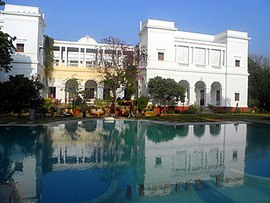Facts About Pataudi State That Will Shock You

During the East India Company's tenure in India, in 1804, the tiny princely state of Pataudi State was founded. The state was a part of the Conquered and Ceded Provinces, which made up the Delhi Territory. It fell under the Delhi Commissioner's suzerainty. The Pataudi family ruled 40 towns within the 52 square mile territory, in addition to the town of Pataudi.

History
During the Second Anglo-Maratha War, the British East India Company founded the state of Pataudi in 1804, with the help of Afghan Muslim Pashtun Faiz Talab Khan of the Barech tribe, who later became the first Nawab, to aid them in their fight against the Maratha Empire. The family may trace their origins to the Lodi dynasty in the 16th century, when their ancestors moved from what is now Afghanistan to India. Iftikhar Ali Khan Pataudi, the eighth Nawab, captained India while also participating in cricket for England. The Indian cricket team was captained by his son, the last Nawab.
The princely kingdom of Pataudi was subsumed into the new Dominion of India (later the Republic of India) following the end of the British Raj and India's democratic unification in 1948. The 26th amendment to the Indian Constitution, which went into effect in 1971, eliminated all formal representations of princely India, including titles, privileges, and compensation (privy purses).
The present patriarch of the family, Saif Ali Khan, is the private owner of the former Pataudi Palace, which was once a hotel.
Rulers
Nawab was the title of rulers.
-
Talab Khan Faiz (1804–1829)
-
Ali Khan Akbar (1829–1862)
-
Ali Taqi Khan, Muhammad (1862–1867)
-
Mukhtar Husain Khan, Muhammad (1867–1878)
-
Mumtaz Husain Ali Khan, Muhammad (1878–1898)
-
Muzaffar Ali Khan, Muhammad (1898–1913)
-
Mohammed Ibrahim Ali Khan (1913–1917)
Following their amalgamation with India, Mohammad Iftikhar Ali Khan (1917–1948) (1948–1952) (only as titular nawab) and Mansoor Ali Khan Pataudi (1952–1971) (Title abolished in 1971) were both active.



